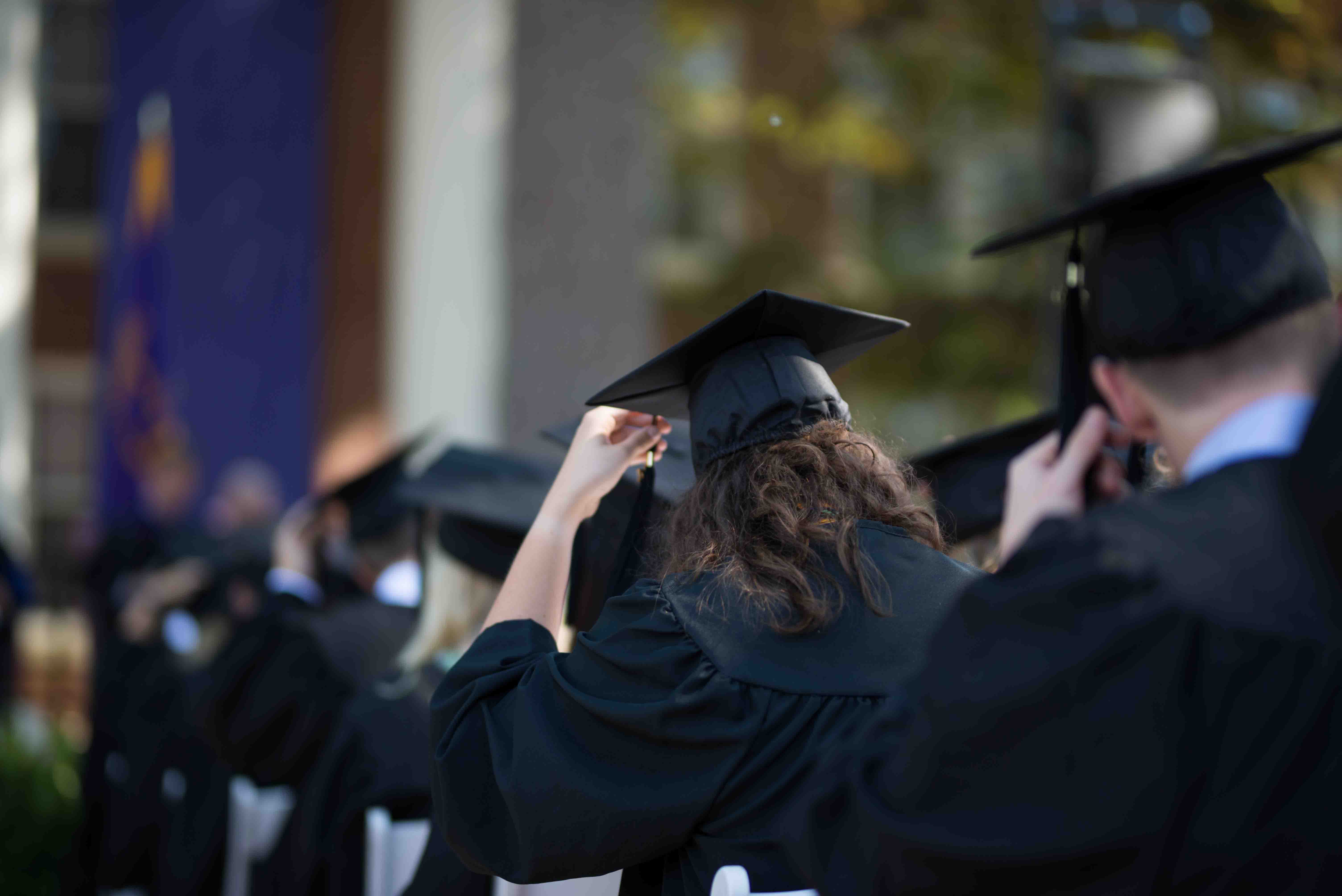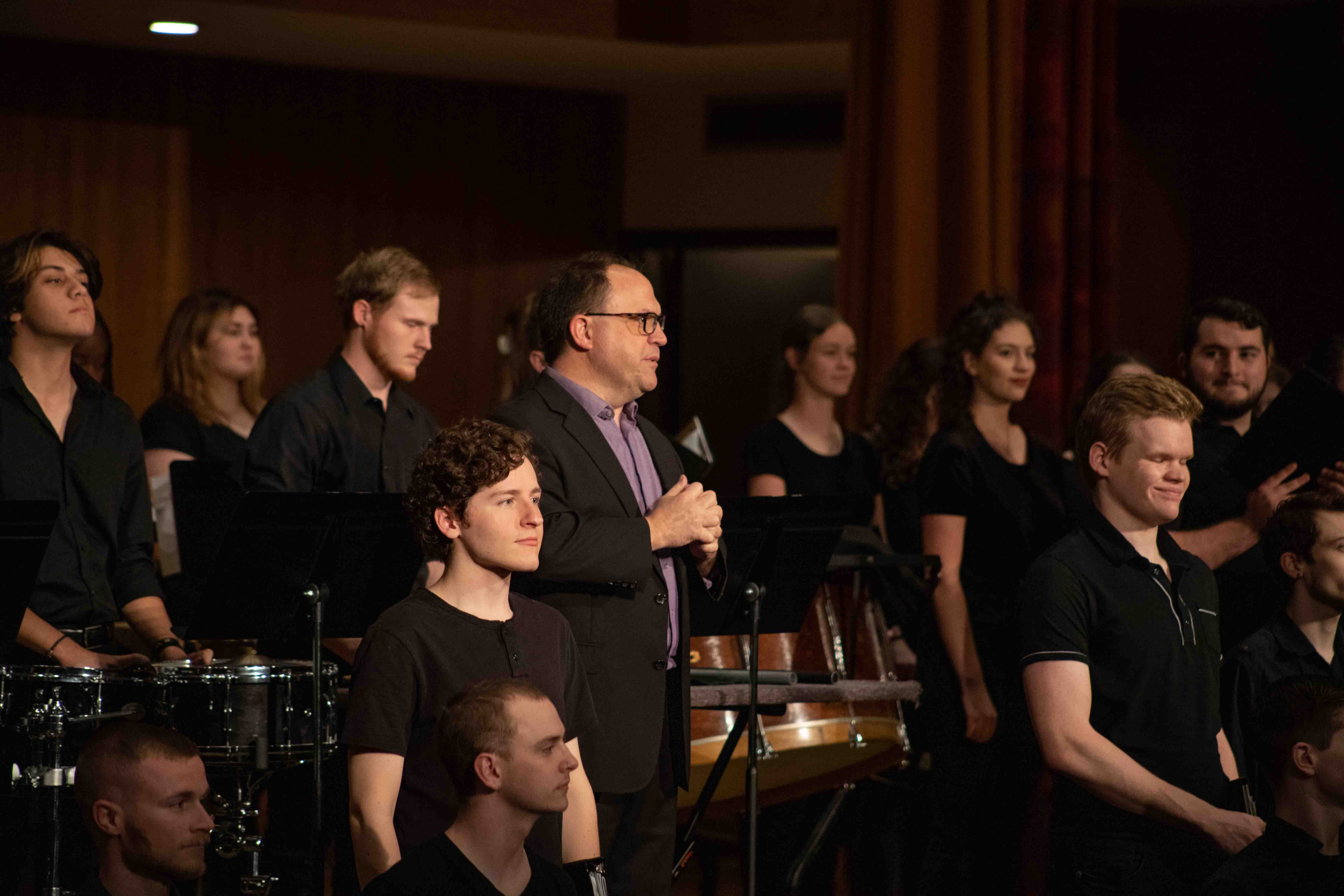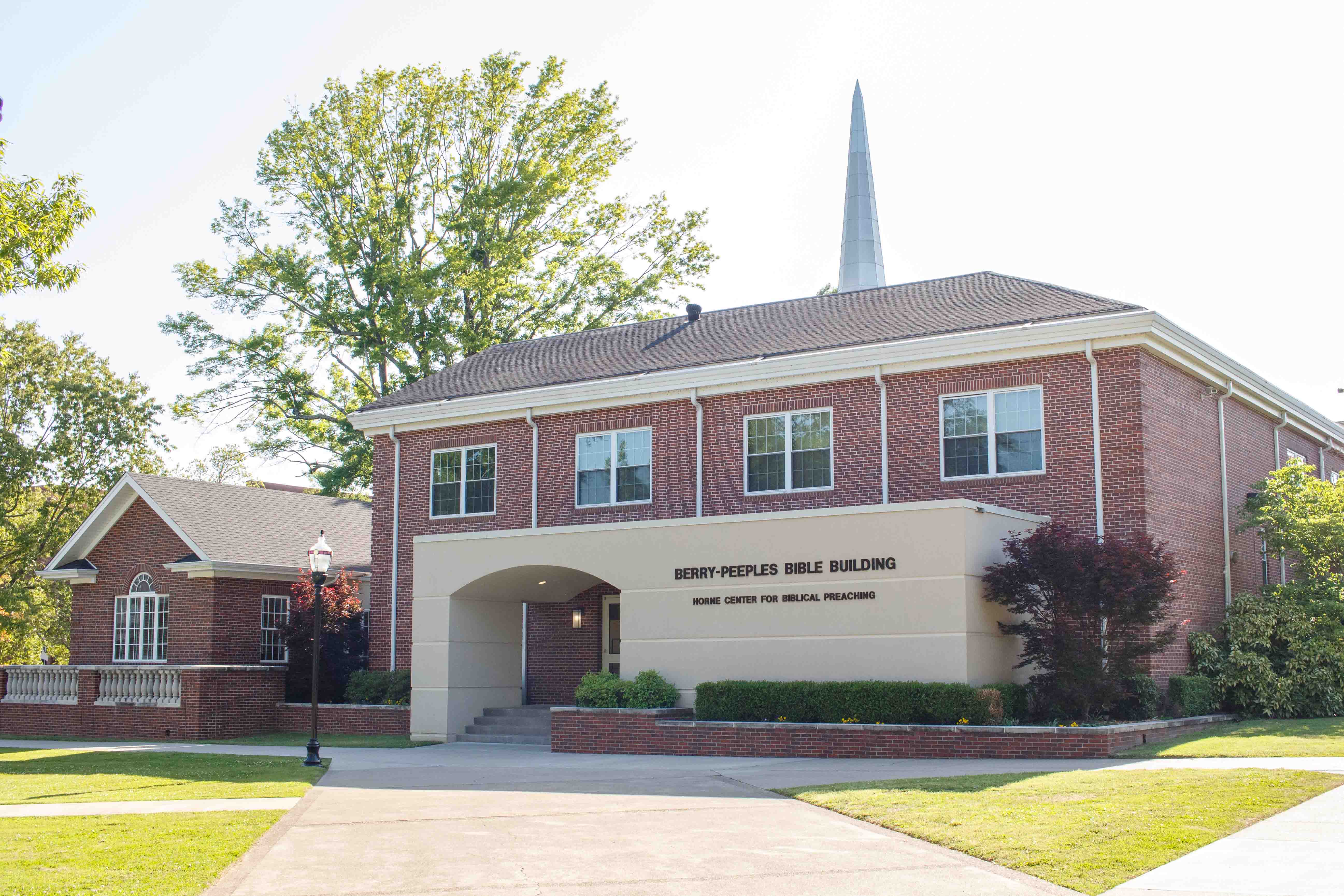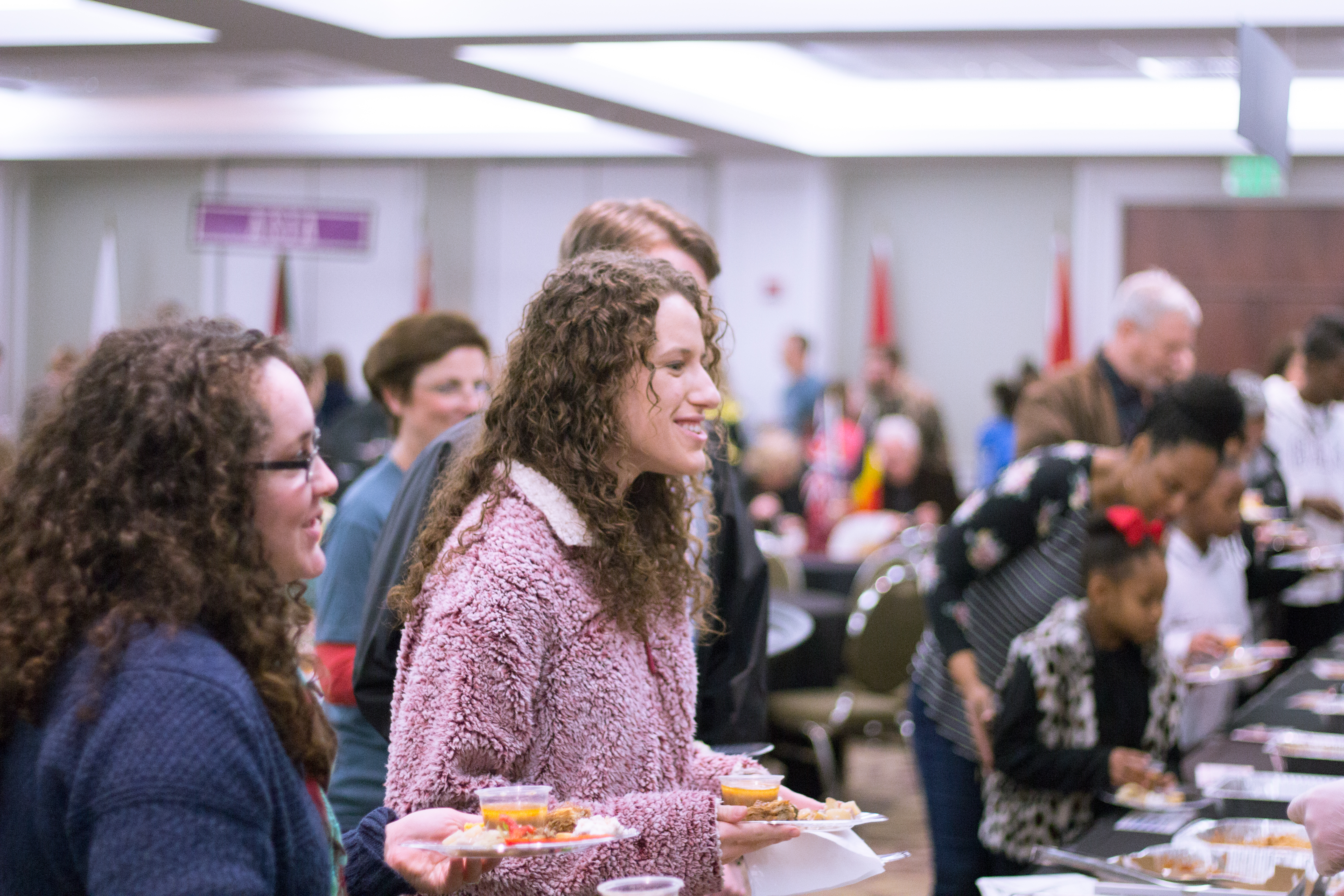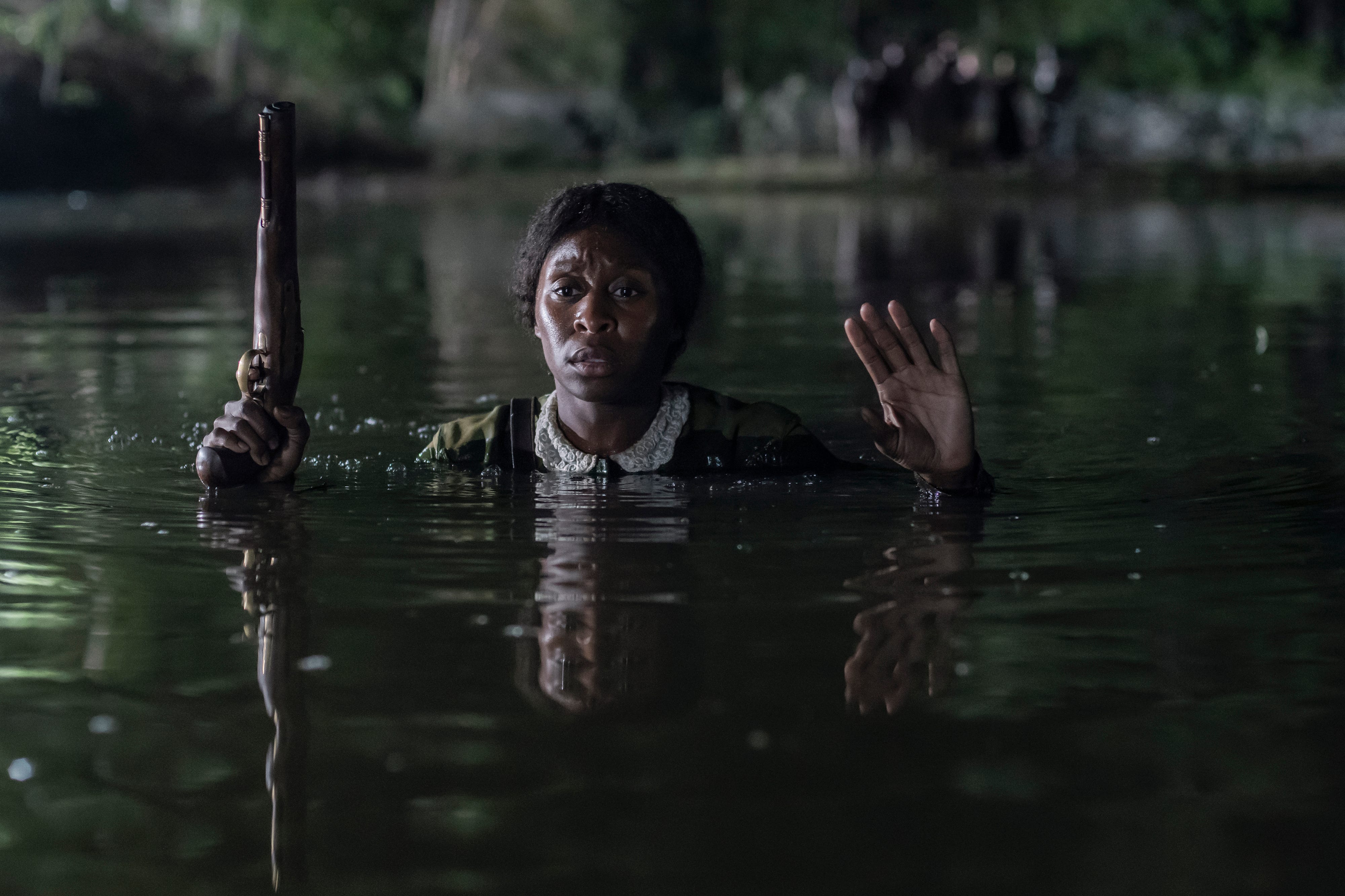Dr. Scott Duvall, Guest Writer
April 28, 2022
Dr. J. Scott Duvall, a 1980 Ouachita graduate, is the J.C. & Mae Fuller Professor of Biblical Studies and chair of the Pruet School’s Department of Biblical Studies.
Commencement season is here. I must admit having bittersweet memories of the day I graduated from Ouachita.
Yes, it’s quite an accomplishment and the celebration with family and friends was memorable—a milestone, changing the world and all that. While finishing a college degree stands as a significant achievement, I was totally unprepared for the abrupt change that graduation day would bring. As a student you spend four years (or more) cultivating community only to have the “adults” decide one Saturday in May that the game is over and we all have to leave. That Saturday was simultaneously wonderful and painful. I would never again live and eat and play and study with that same group of people in the same place. The neighborhood was gone, and when commencement was over I found myself, surprisingly, … grieving.
We have to grow up and staying at OBU forever wasn’t an option, but I’ll never forget how difficult that day was. Wonderfully difficult, you might say. After over 30 years of teaching, I think I know now why it was especially tough. What happens here is, in a word, transformational. It’s mostly the people but it’s also the place. Much like a greenhouse provides an optimum environment for growing new plants, so Ouachita offers a healthy setting for growing kids into adults. That’s probably the reason that some of us come back to work here and many of us come back to visit.
Something special happens here for most people. You arrive an 18-year old kid and you leave a young adult. You land as a bundle of excitement and awkwardness, anticipation and apprehension. During these four years you change, perhaps more than you will ever change again in such a short span. Transformation happens here for many people, at least it did for me.
When I think about how God transformed me at Ouachita, I’m reminded of the account of another group of college students. In his book, The Fabric of Faithfulness,Steven Garber zeroes in on what leads college students to become faithful and stay faithful through their university years. He tells the story of Hans and Sophie Scholl, students at Munich University in the 1940s. Under the guidance of an influential professor, they formed an anti-Nazi resistance movement, The White Rose. They were Christians and distributed ideas through their newspaper about human dignity and freedom that ran counter to Hitler’s dogma. Hans and Sophie and several of their friends were eventually executed by the Nazis. Their professor, the only member of the Munich faculty to support the students, also was martyred. (The 2005 movie, “Sophie Scholl: The Final Days,” powerfully portrays their courageous stance.)
As Garber studied the entire story, he observed that three things set these students apart from the rest, three things were essential to form faithfulness: a biblical worldview or set of convictions, role models such as teachers to incarnate those beliefs for the students to observe and a group of people who share those beliefs who can journey together through life. In other words, the perfect storm of faithfulness includes convictions, counselors and community.
Ouachita is transformational because it’s a place with strong concentrations of these three important essentials: a biblical worldview, wise and loving mentors and a community of like-minded friends. I teach in the Pruet School of Christian Studies and I can say without any hesitation that our greatest strength is teaching students how to value, understand and live out God’s Word. This is not a statement that can be made with integrity by every Christian college in the land. It’s true at OBU.
But this commitment to a biblical set of convictions goes far beyond the Pruet School. When I was a student here, the BSU (now Campus Ministries) made a deep and lasting impact on my life, and CM continues to touch students in significant ways. All over campus faculty, staff and administrators do their part to embody and pass on a biblical view of the world and, as a result, students are transformed.
But a biblical worldview without examples and role models and mentors isn’t worth much. You have the theory but no sense of how these beliefs play out in real life. Once again, Ouachita is a transformative place because of its people—those who teach and plan and counsel and serve and do so many other things for the benefit of our students. The place provides a wealth of courageous and compassionate examples. I’ve heard the parents of numerous prospective students say that they can tell from the beginning that we care deeply about students.
During this phase of life, you sometimes need to talk to someone trustworthy who is not a peer or a parent. Ouachita has those people in abundance and students are transformed by their example. When we forget the lectures, we still remember the words of encouragement, the presence at a recital or ballgame, the comforting talk and the many other times when our mentors at Ouachita embodied our biblical beliefs.
The third essential is community. We need fellow travelers to journey with us through the good times and the bad. To say Ouachita is a social place is a huge understatement. But social doesn’t always include community. Along with all the fun, deep and lasting friendships are forged here. True community happens here. That’s why commencement was painful. I loved my community and it hurt to give it up so suddenly.
Since then I’ve learned that authentic community can be found elsewhere since the Spirit of God joins us together in real community. But it happens so naturally and so quickly here. It has a lot to do with living on campus, where you are forced to reckon with important things like laundry, respecting others’ space, flexibility, forgiveness, and where you reap the benefits of laughter, spontaneous trips and pranks, envisioning the future and so on. You grow close as you learn together, eat together, play together and worship together.
Ouachita isn’t a perfect place but it is a transformational place because it nurtures convictions, counselors and community. God is not just involved in one of these three elements; He’s in all of it, orchestrating a beautiful symphony of faithfulness. And no matter how long you’ve been away, most of us still remember the day we had to leave and look forward to our next visit. My only consolation to each graduating class is a plea to let God use you to cultivate the same kind of transformation wherever you go.

